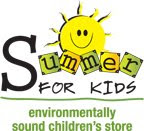
Give your baby the best care you can. And one of the best things that only you can do is to breastfeed for as long as possible.
BENEFITS FOR BABY:
A mother's milk has just the right amount of fat, sugar, water, and protein that is needed for baby's growth and development. Breast milk has agents called antibodies (proteins made by certain white blood cells in response to a foreign substance (antigen). Antibodies neutralize or destroy antigens) in it to help protect infants from bacteria and viruses and to help them fight off infection and disease.
Therefore Breastfed babies have fewer illnesses. About 80% of the cells in breast milk are macrophages, cells that kill bacteria, fungi, and viruses. Breastfed babies are protected in varying degrees from a number of illnesses including, pneumonia, botulism, bronchitis, staphylococcal infections, influenza, ear infections, and German measles. Furthermore, mothers produce antibodies to whatever disease is present in their environment, making their milk custom-designed to fight diseases their babies are exposed to as well.
Formula does not provide any of the disease-protective factors present in human milk. Infants artificially fed infants are generally sicker and sick more often. They are three to four times more likely to have an ear infection or diarrhea and ten times more likely to be admitted to a hospital for bacterial infections.
Breastfeeding reduces or even eliminates food allergies & eczema.
Human milk straight from the breast is always sterile. Breast Milk is the most complete form of nutrition for infants. Breast milk is free!
Babies find it easier to digest breast milk than they do formula. Human milk is the perfect food for a sick infant. When a formula fed baby gets a gastrointestinal ailment they are usually put on an artificial electrolyte solution because formula is too hard for them to digest. Breast milk, however, is easily digested, and soothing to the intestines, so there is no need for artificial and expensive electrolyte solutions. If a baby gets a respiratory illness, formula may cause even more mucus. In contrast, breast milk contains antibodies to these ailments, as well as being highly digestible and not contributing to excess mucous formation.
Breastfeeding satisfies baby's emotional needs and increases bonding between mother and baby. All babies need to be held. There is no more comforting feeling for an infant of any age than being held close and cuddled while breastfeeding. In fact, studies have shown that premature babies are more likely to die if they are not held or stroked. Breastfeeding stimulates the release of the hormone oxytocin in the mother's body. It is now well established that oxytocin, as well as stimulating uterine contractions and milk ejection, promotes the development of maternal behavior and also bonding between mother and offspring.
Breastfed infants grow exactly the way they should. They tend to gain less unnecessary weight and to be leaner. This may result in being less overweight later in life. Premature babies do better when breast-fed.
Breastfed babies are slightly higher in IQ tests, especially babies who were born pre-maturely.
Failure to breastfeed is also one of the risk factors believed to contribute to
Breast milk provides natural pain relief for baby
Breast milk actually contains chemicals that suppress pain (endorphins). Aside from this, the comfort a baby derives from being held close and suckling is remarkable. Many a bruise or scrape has been soothed away almost instantly by a few moments of nursing. If you choose to have your child vaccinated, it is a good idea to nurse immediately after he/she receives a vaccination. This soothes the hurt, as well as enhancing the vaccine's effectiveness.
BENEFITS FOR MOM:
Nursing uses up extra calories, making it easier to lose the pounds of pregnancy. It also helps the uterus to get back to its original size and lessens any bleeding a woman may have after giving birth.
Breastfeeding, especially exclusive breastfeeding (no supplementing with formula), delays the return of normal ovulation and menstrual cycles. (However, you should still talk with your doctor or nurse about birth control choices.)
Breastfeeding lowers the risk of breast and ovarian cancers, and possibly the risk of hip fractures and osteoporosis after menopause.
A mother can give her baby immediate satisfaction by providing her breast milk when her baby is hungry.
Breastfeeding requires a mother to take some quiet relaxed time for herself and her baby.
Breastfeeding helps a mother to bond with her baby. Physical contact is important to newborns and helps them feel more secure, warm and comforted.
Mothers who artificially feed are at greater risk of excessive bleeding after birth, ovarian cancer and premenopausal
breast cancer. Not breastfeeding increases mother's risk of developing endometrial cancer. A World Health Organization study has shown that the longer a woman breastfeeds, the less likely she is to get endometrial cancer.
